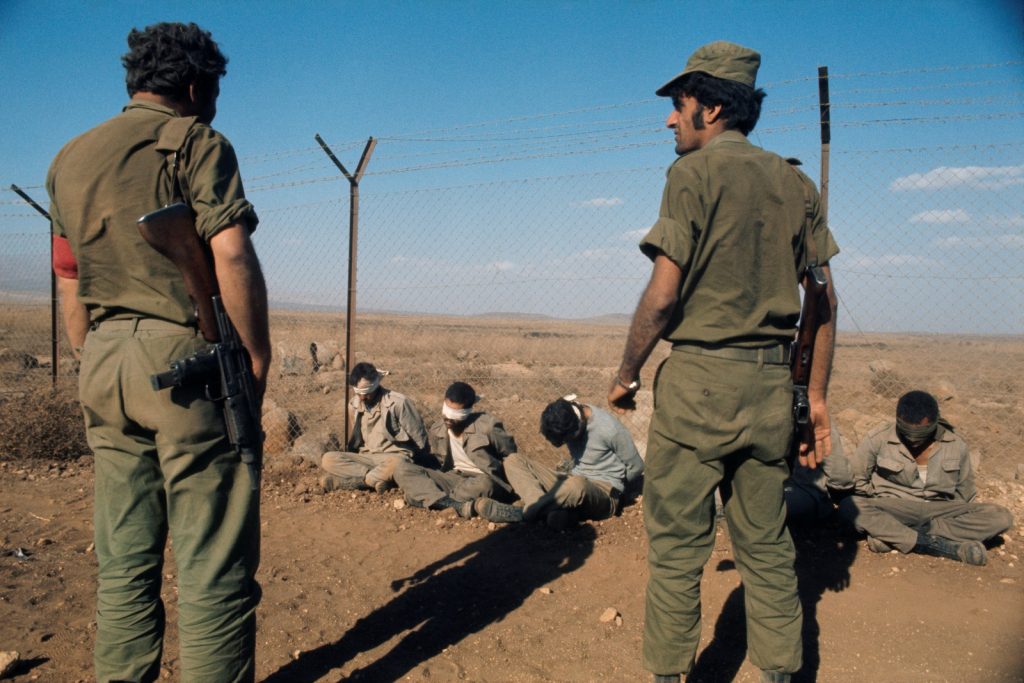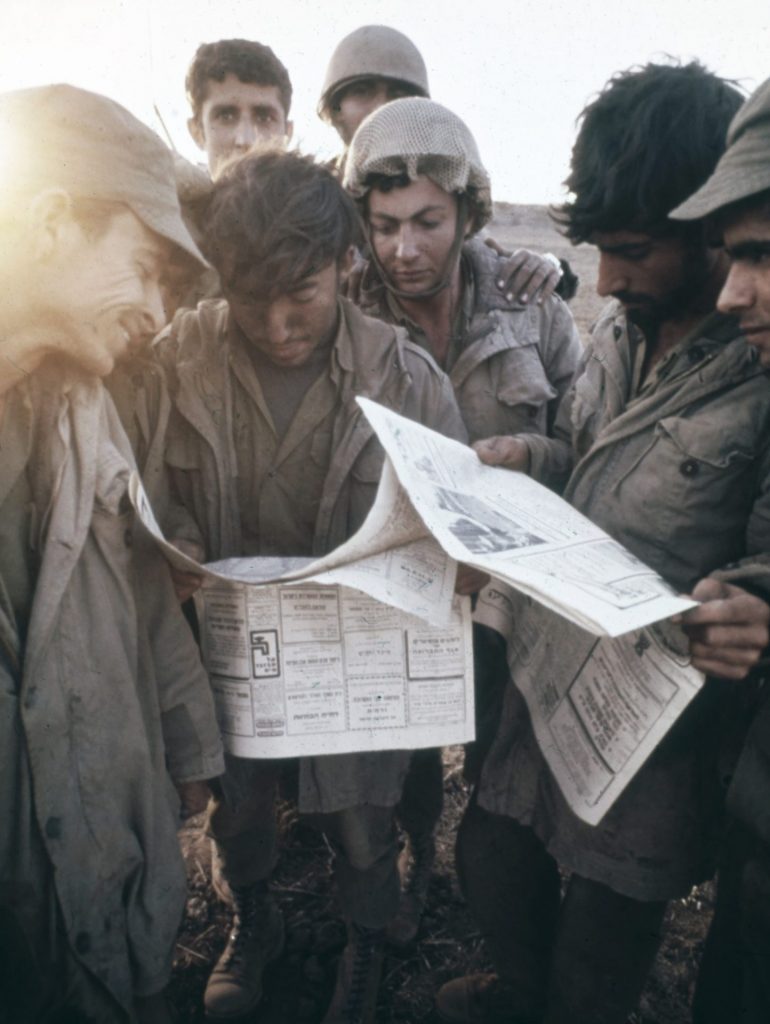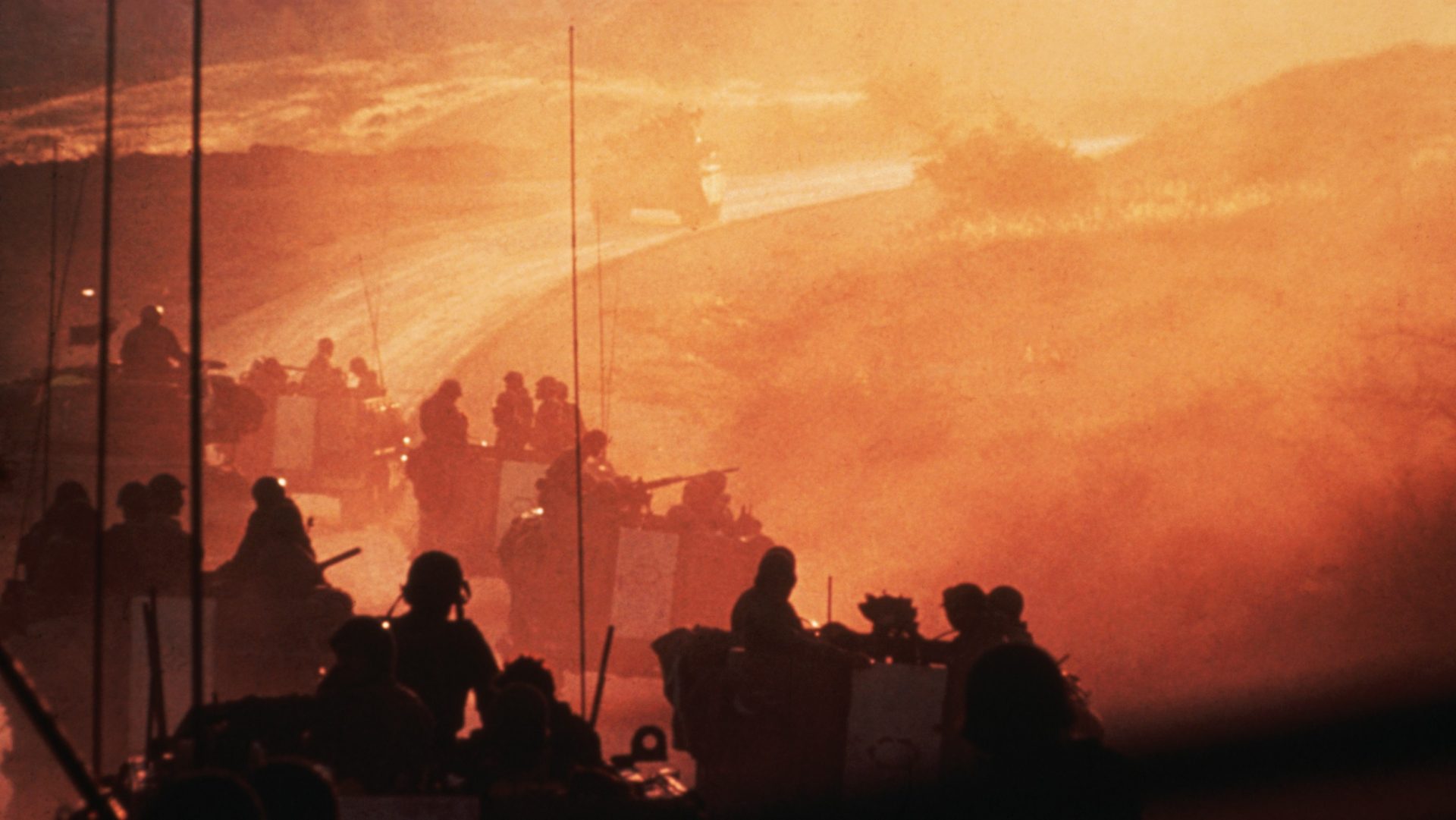As the 50th anniversary of the Yom Kippur war approaches, the media and television in Israel is full of commemoration. Friends there still call it the most traumatic episode in the country’s history, and there is plenty of competition for that title.
Yet the details are remembered less well here, despite Europe’s more-than-incidental role in the conflict – and despite the small matter of it nearly starting a third world war.
On October 6, 1973, the Jewish holy day of Yom Kippur, Syrian and Egyptian forces launched a joint attack, catching the Israeli Defence Forces (IDF) by surprise. Syrian forces advanced across the Golan Heights, the strategic high ground taken by Israel during the 1967 six-day war. Egyptian forces crossed the Suez Canal in boats pulling bridges with them as high-powered water cannons destroyed Israeli defensive sand barriers, allowing armoured brigades to pour through and retake the Sinai Peninsula, also lost in 1967. The Egyptian and Syrian forces were supported by expeditionary forces from several other Arab and Muslim states.

Finally, after a bitter 18-day struggle matched with international push-and-pull between Washington and Moscow, the Arab armies were pushed back, with heavy losses on both sides and the territory Israel held at the beginning of the war was recaptured.
At the start of the war, the US and the USSR had requests for support from their respective allies. On the Golan front, Syrian forces got direct support from Soviet military personnel, and it was estimated that around 20 were killed in action.
The Americans were initially reluctant to come to Israel’s aid. Then, during the night of October 8-9 and after being told by her defence minister, Moshe Dayan, that Israel was facing defeat, the prime minister, Golda Meir, authorised the assembly of 13 tactical nuclear weapons. The readying of these weapons was done overtly, as a signal to the US.
The US secretary of state, Henry Kissinger, was briefed on the morning of October 9. He convinced Richard Nixon – by now fully embroiled in Watergate and about to replace his scandal-hit vice-president, Spiro Agnew, with Gerald Ford – to order a US airlift to Israel. Allegedly Kissinger told the Egyptian president, Anwar Sadat, the airlift was approved because the Israelis were close to “going nuclear”.
While East Germany joined in with support for Syria, the US was unable to sway its European allies into helping Israel. According to the historian Eric Hobsbawm, Europe was more concerned with its own oil supplies than with supporting an operation that the US suggested was “essential to the global struggle against communism”. With the exception of Portugal, the Netherlands, and military-ruled Greece, European nations refused to even allow US planes carrying supplies for Israel to refuel at their own bases. There is a stark contrast with what happened 30 years later when America again felt the need to intervene in the Middle East.

In response to US intervention, the Arab states cut oil supplies and threatened embargoes, leading to the 1973 energy crisis. In doing so they discovered their ability to manipulate oil prices. Governments around the world also noticed that there was nothing the US could do to stop them.
As the conflict ramped up, Soviet nuclear warheads arrived in Egypt to counter the Israeli nuclear preparations. This contributed to Washington’s decision to lift America’s military status on the night of October 24-25 to DefCon III, its highest since the 1962 Cuban missile crisis. The move surprised the Soviets.
On October 24, as Sadat was appealing for the US and USSR to oversee a ceasefire as part of UNSC Resolution 339 passed the previous day, the Soviet president, Leonid Brezhnev, sent Nixon a letter stressing the need to push Israel into observing a ceasefire and suggesting that a failure to do so would see the Soviets stepping in to fight alongside Egypt.

Kissinger, empowered by Nixon, sent a message to Sadat asking him to drop his request for Soviet assistance, threatening a US intervention if the Soviets were to intervene. Brezhnev decided that the Americans were too nervous, so delayed any response. The next morning (25th) the Egyptians acquiesced, and with the Israelis within striking distance of Cairo and Damascus, the fighting began to de-escalate, with most heavy fighting ceasing by October 26. On October 28 Israeli and Egyptian military leaders met in Sinai for the first time in 25 years to implement the ceasefire.
When the ceasefire was reached, there was little rejoicing in Israel. The failure to foresee the attack was the greatest failure in Israeli history. One analysis blamed “arrogance, lack of understanding of the abundant intelligence information, and disregard for the enemy.”
The end of the war began the road to the Camp David accords, signed by Sadat and the new Israeli prime minister, Menachem Begin, which saw Sinai returned to Egypt, and in turn led to the 1979 Egypt-Israel peace treaty, marking the first instance of an Arab country recognising Israel as a legitimate state. Sadat and Begin shared the 1978 Nobel Peace Prize.

After the war, Israel recognised that there was no guarantee that they would dominate the Arab states militarily. This opened avenues for negotiations, but also widened fissures in internal politics.
The war pushed Israeli politics to the right, and at the same time prompted the rise on the left of those advocating peace movements. But there was a deeper legacy. The failure to foresee the war, and the underestimation of the enemy, scarred the Israeli psyche and shattered its myth of invincibility.
Israel identified the groupthink of Golda Meir’s tight inner circle and the closeness of military intelligence officers to politicians in that circle as key weaknesses. The military historian John Hughes-Wilson described the situation as a “classic example of confusing political aspirations with hard facts”. For good or ill, Israel would not make the same mistakes again.



